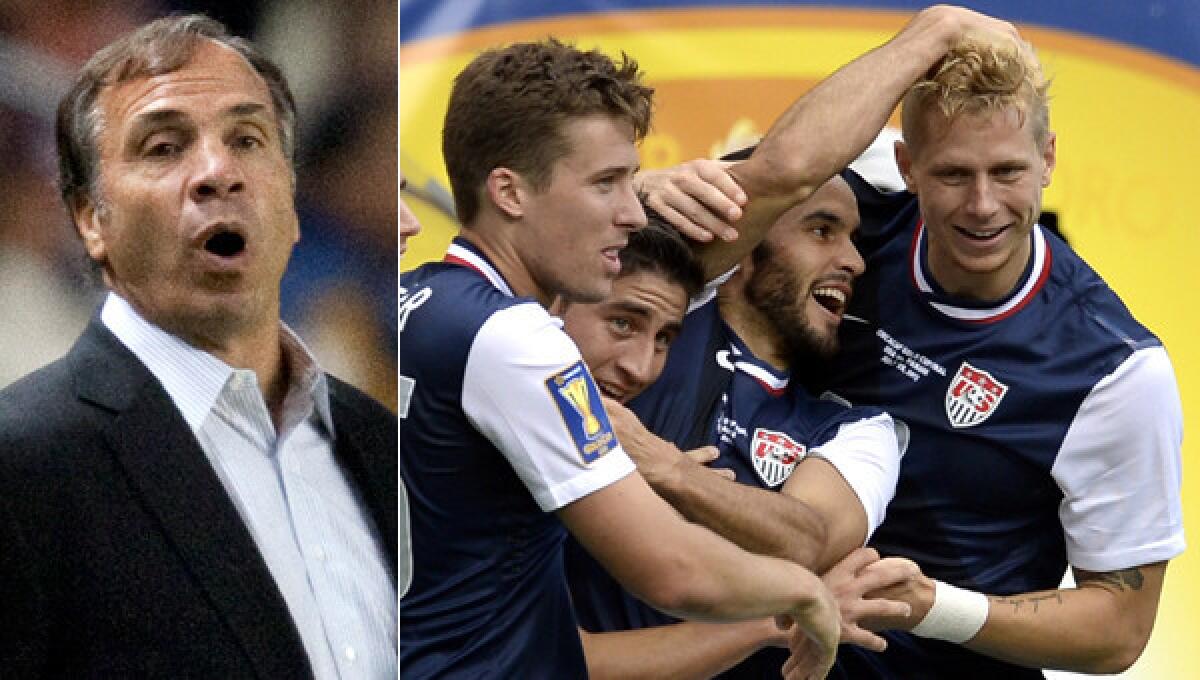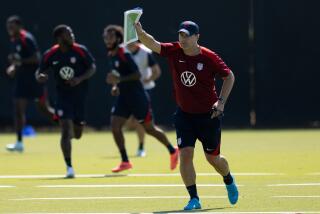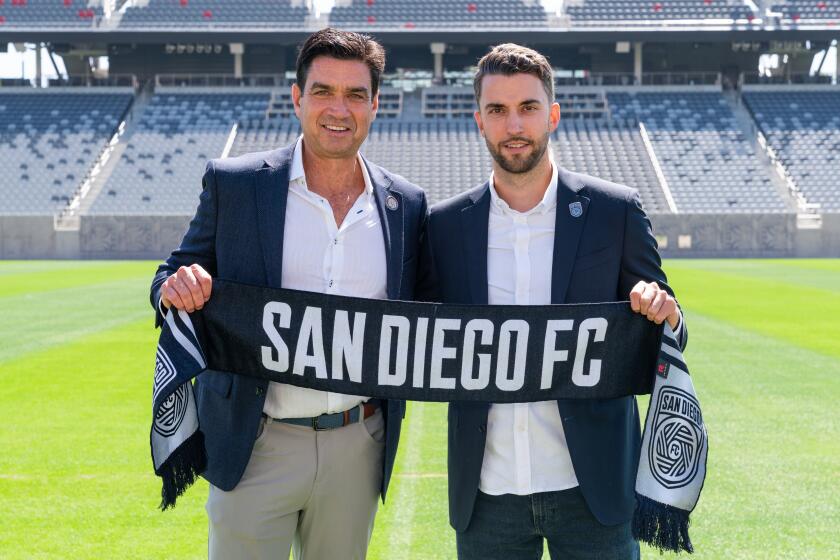U.S. needs good draw, fast start for World Cup success

Entering Fridayâs draw for the 2014 FIFA World Cup in Brazil, the United States and 31 other countries in the tournament will be on pins and needles to see how they fare in the selection process.
The 2014 World Cup field is arguably the strongest in history. The eight seeded teams â four from Europe (Spain, Germany, Switzerland, and Belgium) and four from South America (Brazil, Argentina, Colombia and Uruguay) â are all capable of advancing deep in the tournament.
The draw will produce eight groups of four teams. Each country plays three games in a round-robin format in the opening round, with the top two teams in each group advancing to the knockout stage.
In my view, the U.S. needs to avoid landing in a group with Spain, Brazil, Argentina and Germany, and draw only one European country in their group and hopefully dodge playing the Netherlands and Italy, as well.
Opening games are always challenging. The stronger countries tend to lean on their experience and skill to advance out of group play. The Amercans have no such cushion and must be in top form in their opening game if they hope to advance. Generally, a minimum of four points is required for a team to advance to the next round. Therefore, the U.S. needs âa resultâ â one point for a draw or three points for a win â in Game 1. Anything short of at least one point in the opener will make the U.S. teamâs challenge even greater.
The preparation for a World Cup is complicated. From my experience, in 2002 the U.S. did a great job in preparation (the U.S. reached the World Cup quarterfinals) and a poor job in 2006 (the U.S. finished last in group play). In 2006, our pre-Cup exhibitions were against Latvia, Morocco, Venezuela and Algeria, teams that lacked the quality to properly test our team, both mentally and tactically.
For this World Cup, Iâm confident that the U.S. will have the resources and leadership to construct a proper schedule to maximize the teamâs potential. A number of World Cup teams are likely to travel to North America prior to going to Brazil. Therefore, the U.S. can schedule some strong opponents for its final exhibition games.
In January U.S. Coach Juergen Klinsmann will evaluate players from MLS and a handful of foreign-based players in training camp. The U.S. will play an exhibition against South Korea in Carson on Feb. 1, and then assemble its strongest available team for another FIFA friendly on March 5.
Teams assemble 30 days before the opening kickoff of the World Cup on June 12 in Sao Paulo.
The final and most important preparation will come in May and June. Klinsmann will need to finalize his 23-man squad and play a number of competitive exhibitions to have his team prepared for the opening game in Brazil. The biggest concern for a national team coach at this point in preparation is burnout. Most players are coming off a rigorous 10-month schedule. Therefore, the balance between rest and work is critical to make sure players are physically and mentally ready to play at their best in the World Cup.
Barring injuries and any major fall in form, my early bet for final U.S. roster spots would include the following players:
Goalkeepers (2): Brad Guzan, Tim Howard.
Defenders (5): DaMarcus Beasley, Matt Besler, Geoff Cameron, Brad Evans, Omar Gonzalez.
Midfielders (5): Michael Bradley, Clint Dempsey, Landon Donovan, Jermaine Jones, Graham Zusi.
Forwards (3): Jozy Altidore, Aron Johannsson, Eddie Johnson.
This leaves eight positions open for the final U.S. roster. The backline and midfield positions need both experienced players and speed in the flanks. The competition should be fierce over the next five months.
As for the tournament, there will be a number of âGroups of Deathâ â when favored teams are eliminated in the opening round. But it will result in one of the most exciting and competitive Cups in history.
However, for my money, the host country Brazil is my favorite to win the 2014 World Cup.
Arena is general manager and head coach of the Galaxy and was head coach of the U.S. national soccer team in the 2002 and 2006 World Cups.







